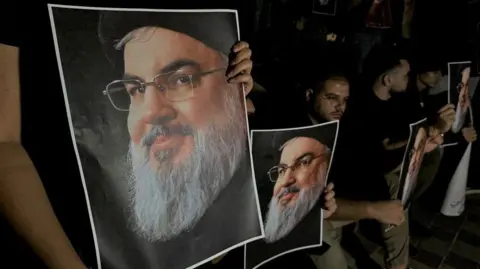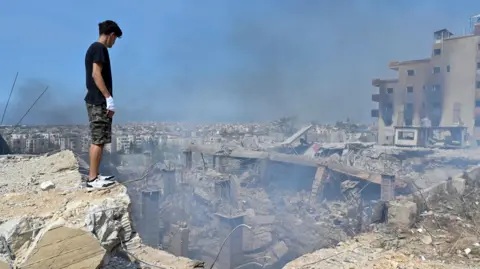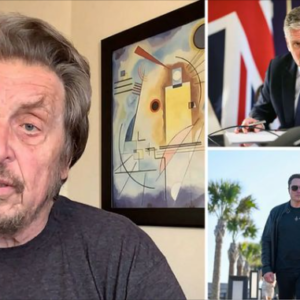
Israel’s Assassination of Hassan Nasrallah: Implications for Regional Stability
Israel’s assassination of Hassan Nasrallah, Hezbollah’s long-time leader, marks a significant escalation in the ongoing conflict between Israel and the Lebanese militant group. This event could potentially lead to a wider and more destructive conflict involving Iran and the U.S.
The future trajectory of this conflict hinges on three critical questions:
- What will Hezbollah do?
Hezbollah has faced severe setbacks, losing many top commanders and suffering significant damage to its communications and weaponry. Despite these losses, the organization remains committed to continuing its fight against Israel, with thousands of fighters and a substantial arsenal of missiles. They are under pressure to retaliate swiftly before their capabilities are further diminished. However, a large-scale attack could provoke a devastating Israeli response that may extend to Iran. - What will Iran do?
The assassination is a significant blow to Iran, prompting a five-day mourning period. Iranian leadership is likely contemplating a response, particularly given its network of allied militias in the region, known as the “Axis of Resistance,” which includes groups in Yemen, Syria, and Iraq. While Iran may encourage these groups to intensify attacks on Israel and U.S. bases, any retaliation will likely be measured to avoid triggering a full-scale war. - What will Israel do?
Israel is unlikely to halt its military campaign, dismissing calls for a 21-day ceasefire. The IDF believes Hezbollah is vulnerable and aims to eliminate the missile threat. Achieving this goal may require a ground invasion of Lebanon, which poses significant challenges. Although entering Lebanon might be straightforward for the IDF, extricating forces afterward could take months, similar to the situation in Gaza.
As tensions escalate, the potential for a broader conflict in the region looms large.






